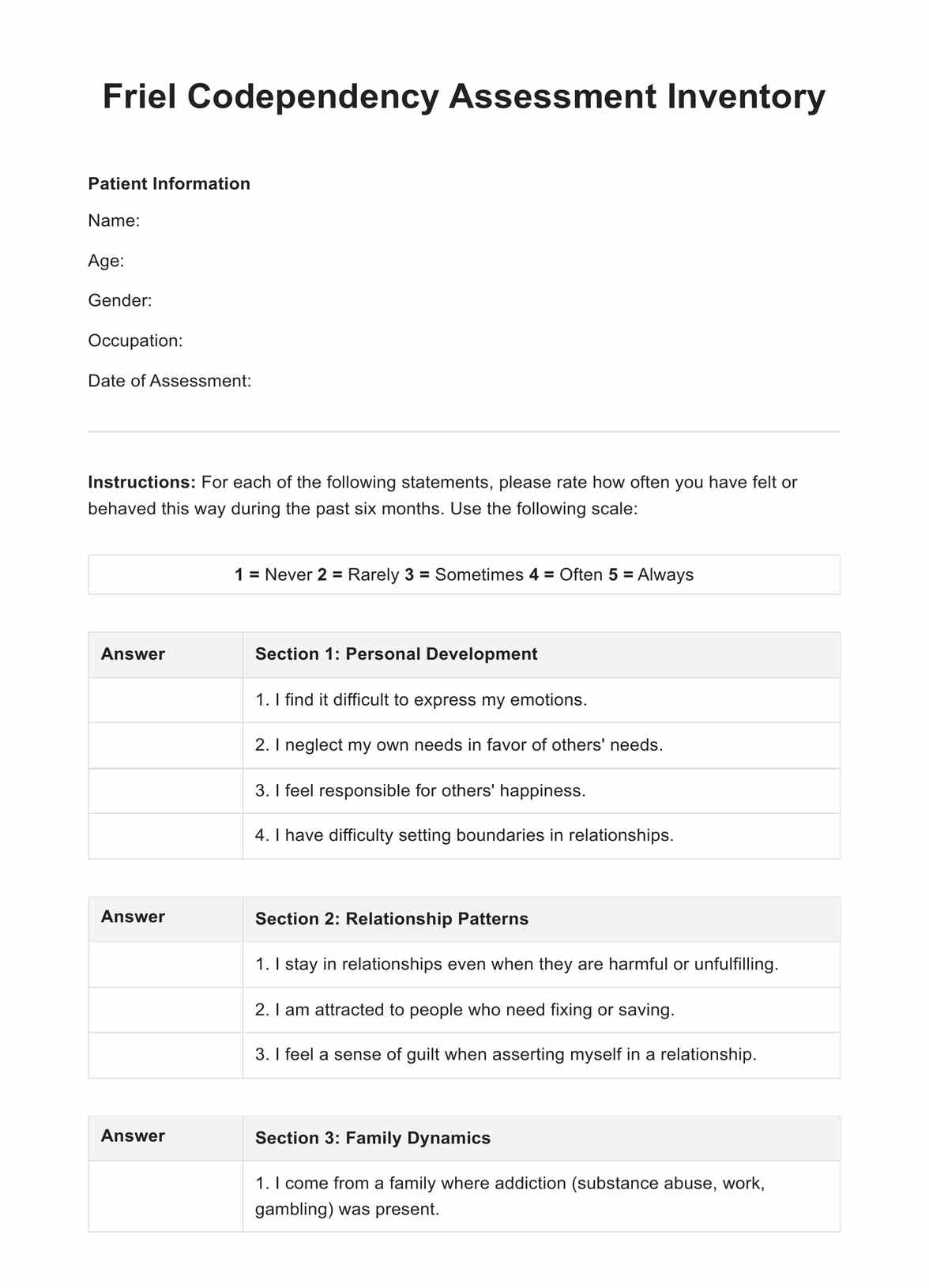The relationship codependency scale is a tool used to assess the level of codependency in a relationship. It measures factors such as emotional and behavioral patterns, boundaries, communication styles, and the ability to function independently. Higher scores on the scale indicate a greater degree of codependency, which can negatively impact the health and dynamics of the relationship.

Friel Codependency Assessment Inventory
Understand codependency better with our comprehensive Friel Codependency Assessment Inventory. Download our free PDF today for an insightful self-evaluation.
Friel Codependency Assessment Inventory Template
Commonly asked questions
Codependency involves an unhealthy reliance on another person for emotional well-being and self-worth. When two codependent individuals are together, they may reinforce each other’s codependent behaviors, making it difficult to establish healthy boundaries and independence. Counseling or therapy is often necessary to address codependency and develop more balanced and fulfilling relationships.
Codependency in friendships can manifest in various ways, such as excessive emotional reliance, difficulty making decisions without the friend’s input, and neglecting other relationships or personal interests. Codependent friends may have difficulty setting boundaries, leading to resentment or burnout. They may also struggle with expressing their own needs and feelings, instead focusing on the other person's needs.
EHR and practice management software
Get started for free
*No credit card required
Free
$0/usd
Unlimited clients
Telehealth
1GB of storage
Client portal text
Automated billing and online payments











